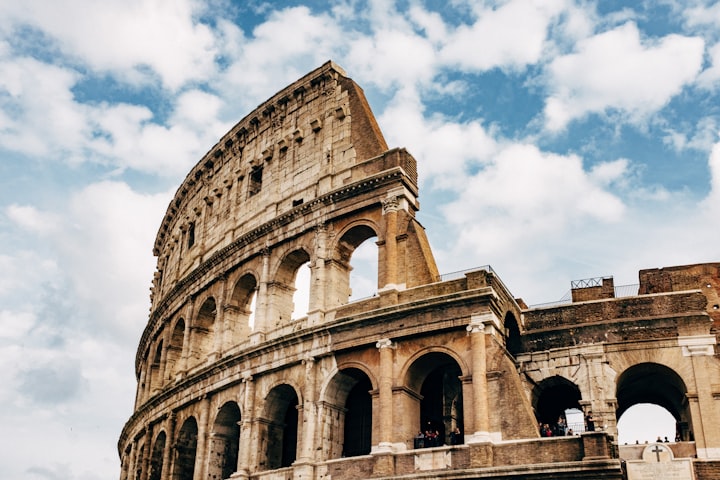The Roman Empire: Triumphs, Transformations, and Legacy
Roman Empire

The Roman Empire, one of the most formidable and enduring civilizations in history, spanned centuries and left an indelible mark on the world. This essay explores the rise, achievements, transformations, and lasting legacy of the Roman Empire, shedding light on its unparalleled influence and contributions to governance, law, architecture, and culture.
The Rise of the Roman Empire:
The Roman Empire emerged from the Roman Republic, a period characterized by political upheaval and social unrest. Under the leadership of Julius Caesar, the Republic transitioned into an empire, solidifying its power and expanding its territories through military conquests. The reigns of Augustus, Trajan, and Hadrian marked periods of stability and prosperity, bringing about the Pax Romana, a time of relative peace and economic growth across the empire.
Achievements and Contributions:
The Roman Empire's achievements were vast and varied, influencing countless aspects of human civilization. The Romans excelled in engineering and infrastructure, constructing monumental structures such as aqueducts, roads, and bridges, some of which still stand today. Their architectural prowess is exemplified by iconic structures like the Colosseum, the Pantheon, and the Roman Forum.
The Roman legal system, based on the principle of "jus civile" (civil law), served as a foundation for modern legal frameworks, emphasizing the importance of fairness, due process, and the rule of law. Roman jurisprudence, most notably codified in the Corpus Juris Civilis, established a lasting legacy in legal scholarship and influenced legal systems throughout Europe and beyond.
Roman society and culture were characterized by a blend of influences, drawing from Greek philosophy, literature, and art. Roman authors, such as Virgil, Cicero, and Ovid, produced literary masterpieces that continue to captivate readers today. Roman contributions to the fields of engineering, mathematics, and medicine also made significant advancements in scientific knowledge.
Transformations and Decline:
Despite its achievements, the Roman Empire underwent significant transformations that eventually led to its decline. Internal power struggles, economic crises, and the increasing pressure of barbarian invasions weakened the empire over time. The division of the empire into the Western and Eastern halves, and the subsequent fall of the Western Roman Empire in 476 CE, marked the end of ancient Rome as a political entity.
Legacy:
The Roman Empire's legacy endures in various forms. Roman law continues to shape legal systems across the globe, providing a foundation for concepts of justice and governance. The Latin language, spoken by the Romans, evolved into the Romance languages, forming the basis for several modern languages, including Italian, French, Spanish, Portuguese, and Romanian.
Roman architecture, with its emphasis on grandeur and engineering prowess, inspired subsequent architectural movements and designs. The Roman system of governance, with its concepts of citizenship, representation, and administrative structures, laid the groundwork for modern democratic systems.
Conclusion:
The Roman Empire's rise to power, remarkable achievements, transformative influence, and lasting legacy position it as a pivotal force in human history. From its military conquests and legal system to its architectural marvels and cultural contributions, the Roman Empire left an indelible mark on governance, law, art, and language. Though the empire eventually declined, its influence and legacy continue to shape and inspire the world, making it an enduring testament to the heights that a civilization can achieve.






Comments
There are no comments for this story
Be the first to respond and start the conversation.